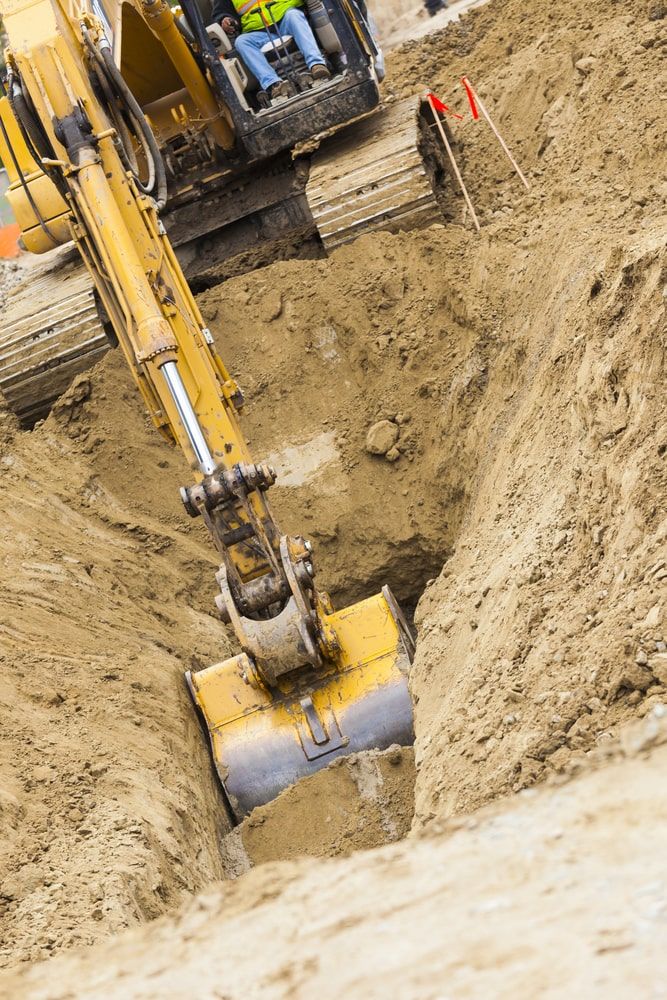Economical Lancaster Excavation - Quality Excavation at Competitive Rates
Economical Lancaster Excavation - Quality Excavation at Competitive Rates
Blog Article
Comprehensive Excavation Approaches: Mastering the Principles for Success
The careful preparation, exact implementation, and thorough interest to information required in excavation projects demand an extensive approach that encompasses different essential aspects. The real mastery lies not merely in comprehending these basics but in perfectly integrating them to navigate the intricacies of excavation projects with finesse.
Comprehending Excavation Task Planning

Effective excavation tasks are constructed on the structure of detailed and meticulous planning. The first phase of any type of excavation project is the planning phase, where crucial choices are made that can significantly influence the outcome of the task. Throughout this phase, it is important to collect all appropriate details regarding the site, consisting of topographical studies, soil make-up, and any kind of possible risks that might exist. Recognizing the job timeline, range, and budget constraints is essential for creating a comprehensive excavation plan that guarantees the job's success.
One key element of excavation task planning is the development of a detailed timeline that outlines the sequence of milestones, target dates, and activities. This timeline works as a roadmap for the job team, permitting them to track progression and make needed changes to make sure the project remains on timetable. In addition, a distinct budget that makes up all expenses, including devices leasing, labor costs, and materials, is vital for staying clear of expense overruns and delays. By very carefully thinking about all these factors throughout the planning phase, excavation jobs can be implemented efficiently and effectively, resulting in effective outcomes.
Soil Evaluation and Website Examination
Performing complete soil evaluation and site analysis is a crucial action in the prep work phase of any type of excavation job. Soil evaluation includes figuring out the structure, structure, and residential properties of the dirt at the excavation website. This details is essential for comprehending the soil's bearing capacity, wetness web content, and potential for disintegration, which are vital variables in figuring out the excavation approaches and tools required for the task.
Site examination surpasses dirt evaluation and incorporates a broader evaluation of the general site problems. This analysis consists of recognizing any type of possible hazards, such as underground energies, environmental concerns, or unsteady terrain, that can affect the excavation process. By extensively assessing the site, job supervisors can establish effective excavation strategies that focus on safety and security, performance, and environmental management.
Utilizing advanced modern technologies like ground-penetrating radar, soil sampling, and drone surveys can boost the precision and efficiency of dirt analysis and site evaluation. Investing time and sources in these initial steps can eventually conserve time and stop costly hold-ups or complications throughout the excavation process.
Devices Selection and Usage
Efficient excavation projects depend greatly on tactical equipment choice and utilization to ensure ideal performance and efficiency. Picking the best devices for the job is essential in taking full advantage of efficiency and minimizing downtime. Elements such as the kind of dirt, depth of excavation, and project scope play a significant function in figuring out one of the most ideal equipment for the task at hand.

In enhancement to selecting the suitable tools, proper usage is key to task success. Operators should be educated to manage the devices safely and effectively - lancaster trenching. Routine maintenance checks and prompt repairs assist prevent failures and make certain regular efficiency throughout the job
Precaution and Regulations Compliance
In the realm of excavation projects, focusing on safety additional resources and security actions and conformity with laws is vital to guaranteeing a lawfully sound and safe operational environment. Safety and security measures incorporate a series of practices, consisting of performing detailed website evaluations, applying proper signage and barriers, and supplying appropriate safety and security training for all employees included in the excavation procedure. Adherence to regulations, such as OSHA demands in the USA, makes certain that the excavation task meets the necessary criteria to protect workers, bystanders, and the surrounding atmosphere.

Surveillance Progression and Adjusting Approaches
Just how can forecast supervisors efficiently track the innovation of excavation jobs and adapt their approaches accordingly to optimize outcomes? Surveillance progress is important for making sure that excavation jobs stay on track and fulfill target dates. Project supervisors can use numerous devices and methods to track progression, such as everyday progress reports, routine website inspections, and advanced surveillance innovations like drones and GPS tracking systems. By constantly keeping an eye on the job's advancement, managers can identify any kind of possible delays or issues beforehand and take positive steps to address them.

Conclusion
To conclude, understanding the basics of detailed excavation methods is essential for the success of any kind of task. By understanding job preparation, assessing soil and site problems, picking suitable devices, following security laws, and checking development, job managers can make sure a effective and smooth excavation procedure. Implementing these strategies will result in successful results and lessen prospective threats or problems throughout find out here the excavation project.
The preliminary phase of any kind of excavation job is the preparation stage, where important choices are made that can substantially influence the result of the project. Understanding the project budget plan, range, and timeline restraints is important for developing a comprehensive excavation plan that makes sure the task's success.
Just how can project managers effectively track the development of excavation jobs and adjust their techniques accordingly to maximize end results? By very closely monitoring progress and being eager to adapt methods, task supervisors can enhance the overall success of excavation jobs.
By understanding job preparation, evaluating soil and site problems, selecting suitable equipment, conforming with safety and security guidelines, and monitoring development, task managers can make sure a effective and smooth excavation process.
Report this page